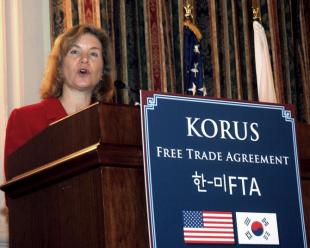Editions : October-December 2017
JOURNAL | POINT OF VIEW By: Frega Ferdinand Wenas Inkiriwang
British voters’ decision to exit from the European Union, better known as “Brexit,” in a June 2016 referendum, was, in short, a massive shock, not only for the British public but also the world. It not only ruptured domestic politics by forcing the resignation of David Cameron as prime minister, who has been replaced by Theresa May, but rattled international markets and leaves the future of Europe under a cloud of uncertainty. It was in another referendum only 42 years ago, in 1975, that 67 percent of British voters overwhelmingly supported moves to create a formal community of European nations. This time it was much different. While the vote was close, Britons showed a unique yet controversial desire to walk away from one of the world’s most solid supranational organizations, the EU. The Brexit option was initially believed to only have support among a minority of the British population. Thus, Cameron confidently pushed forward with the 2016 referendum. He was sure that by giving people the opportunity to vote, they would choose to stay in the EU and the matter would be settled. Nonetheless, a few days prior to the big day, surveys indicated that there had been a substantial change in public opinion in favor of the leave option, including among older citizens from the “baby boomer” generation. And the final result, 52 percent to 48 percent for Brexit, bore that out.
To read the complete article, please subscribe.
To read the complete article, please subscribe.
THIS IS A PREMIUM ARTICLE
You must be logged in as a Strategic Review subscriber to continue reading. If you are not yet a subscriber, please subscribe to activate your online account to get full online access.
Click Here To Login,
Login
Login
BUY A PDF
Buy a premium PDF version of this article
Buy a premium PDF version of this article
SUBSCRIBE
Subscribe and get premium access to Strategic Review's content
Subscribe and get premium access to Strategic Review's content
Coments
Please login to leave a comment
 Korea, America and the future Asia trade strategy
Korea, America and the future Asia trade strategy  The forgotten hero of Indonesia's democratic transition? Military reform
The forgotten hero of Indonesia's democratic transition? Military reform  When facts and faith are intertwined
When facts and faith are intertwined  The energy paradox: Cheap versus clean
The energy paradox: Cheap versus clean